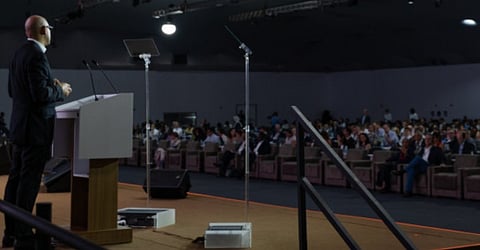COP30: Simon Stiell's Urgent Call to Bridge the Gap Between Real-World Progress and Negotiating Rooms
As ministers and heads of delegation descended on the sweltering Amazonian city of Belém for the high-level segment of COP30, UN Climate Change Executive Secretary Simon Stiell delivered a stark, unflinching address that captured the conference at its turning point: momentum is building in the real economy, but the negotiating halls risk falling fatally behind.
Mid-Stride, But Needing a Sprint
“Your arrival meets COP mid-stride,” Stiell told the assembled leaders. “We are no longer talking about what this COP must do – we are doing it. But we must strive for more.”
After a first week marked by constructive goodwill among negotiators, Stiell commended the shared conviction that the Paris Agreement remains “humanity’s only way to survive this global climate crisis” while spreading the benefits of climate action to all nations.
Yet he tempered praise with reality: headwinds are fierce, the world is fractured, and what is at stake is nothing less than proving that multilateral climate cooperation can stand firm—and deliver faster and fairer—than ever before.
The Irrefutable Rise of a New Economy
The most electrifying part of Stiell’s message was the evidence that the clean energy transition is no longer a forecast—it is happening now, and faster than anyone predicted.
In just seven days of COP30’s Action Agenda, nations and partners rallied around transformative initiatives:
A trillion-dollar surge into clean energy and modern grids
The Belém 4X Commitment—a global plan, now backed by dozens of countries, to quadruple the use of sustainable fuels by 2035
New waves of green industrialization
A pipeline for adaptation finance finally beginning to take shape
These are not aspirations; they are commitments already mobilizing capital and technology.
Stiell underscored the hard data: in 2024 alone, more than $2.2 trillion flowed into renewable energy—greater than the GDP of over 180 countries combined. Clean energy investment now dwarfs spending on fossil fuels by roughly 2:1, with solar PV alone attracting over half a trillion dollars.
This “real-world progress,” he said, is mission-critical. A new economy is rising, and it is proving cheaper, cleaner, and more resilient than the old one.
The Dangerous Disconnect
Yet herein lies the central tension Stiell laid bare: “The pace of change in the real economy has not been matched by the pace of progress in these negotiating rooms. The spirit is there, but the speed is not.”
While disasters hammer economies and drive up food prices for billions, the formal UNFCCC process risks becoming the bottleneck. Tactical delays, stonewalling, and “performative diplomacy” have no place when millions of lives are being wrecked daily.
Stiell’s directive was blunt: ministers must “get to the hardest issues fast.” Push the toughest decisions into extra time, and everybody loses.
“I said we needed an acceleration in the Amazon,” he reminded the room, “and that applies equally to how we all go about our collective work here.”
Time to Roll Up Sleeves
In a fractured geopolitical landscape—exacerbated by the conspicuous absence of the United States delegation—Stiell’s speech was a rallying cry for unity.
Climate cooperation, he insisted, is working; recent COPs have bent the emissions curve downward for the first time. But only if negotiators now match the ambition exploding outside the plenary halls can COP30 deliver the implementation breakthrough the Paris Agreement desperately needs.
“The secretariat will be with you every single step of the way,” Stiell concluded, as ministers prepared for what promises to be a grueling final stretch.
What COP30 Reveals About the State of the Planet—and Humanity
Simon Stiell’s address will be remembered not for its diplomacy, but for its unflinching honesty: we have crossed a threshold. The clean energy revolution is no longer led by governments; it is being driven by markets, technology, and necessity.
Trillions are flowing because renewables are now the cheapest form of new power in most of the world, because grids and storage are finally being upgraded at scale, and because sustainable fuels are moving from niche to mainstream.
Yet the persistence of negotiating inertia exposes a deeper truth: the UNFCCC process, for all its historic achievements, is still calibrated to an era when climate action was a cost rather than an opportunity. When private capital is outrunning public ambition by orders of magnitude, the role of COP must


